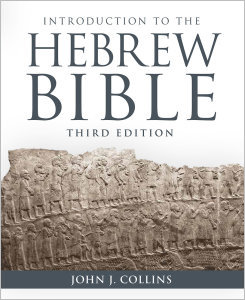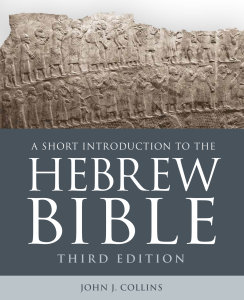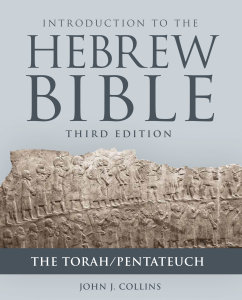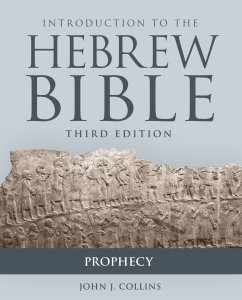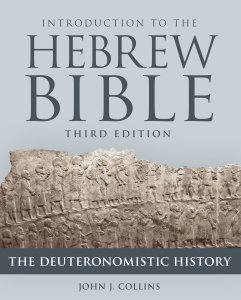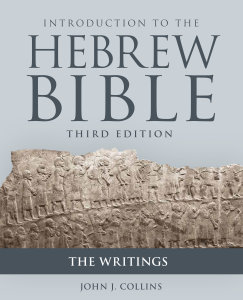-
Introduction to the Hebrew Bible, Third Edition
A Leading Introduction to the Hebrew Bible John J. Collins's Introduction to the Hebrew Bible is one of the most reliable and widely adopted critical...
$69.00
-
A Short Introduction to the Hebrew Bible, Third Edition
John J. Collins's A Short Introduction to the Hebrew Bible has become a popular option for college and seminary classrooms. Enriched by decades of classroom teaching, it is aimed explicitly at motivated students, regardless of their previous exposure to the Bible. This more compact version of Collins's renowned Introduction to the Hebrew Bible is combined with even more student-friendly features.
The third edition is presented in a new and engaging format with new maps and images. An index has been added to the volume for the first time.
$49.00
-
Introduction to the Hebrew Bible, Third Edition: The Torah/Pentateuch
John J. Collins's Introduction to the Hebrew Bible is one of the most popular introductory textbooks in colleges and seminary classrooms. Enriched by decades of...
$29.00
-
Introduction to the Hebrew Bible, Third Edition: Prophecy
John J. Collins's Introduction to the Hebrew Bible is one of the most popular introductory textbooks in colleges and seminary classrooms. Enriched by decades of...
$7.25
$29.00Save 75%
-
Introduction to the Hebrew Bible, Third Edition: The Deuteronomistic History
John J. Collins's Introduction to the Hebrew Bible is one of the most popular introductory textbooks in colleges and seminary classrooms. Enriched by decades of...
$7.25
$29.00Save 75%
-
Introduction to the Hebrew Bible, Third Edition: The Writings
John J. Collins's Introduction to the Hebrew Bible is one of the most popular introductory textbooks in colleges and seminary classrooms. Enriched by decades of...
$29.00
“One of the things I appreciate about Collins the most is his attention to passages in the Hebrew Bible that seem to sanction violence. These are always troubling for students in this course, and Collins does an excellent job of identifying the problems and offering possible solutions. These insights often provide great ways for our classroom discussions to begin.”

